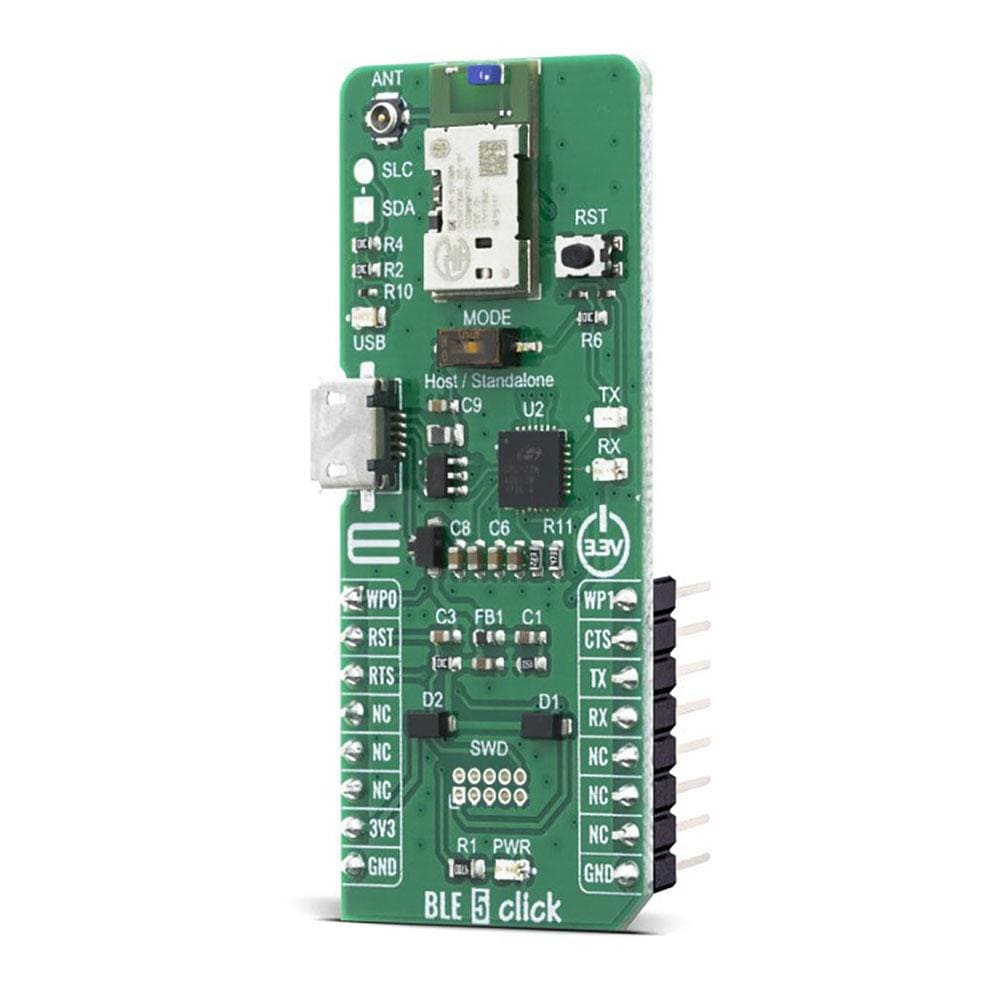
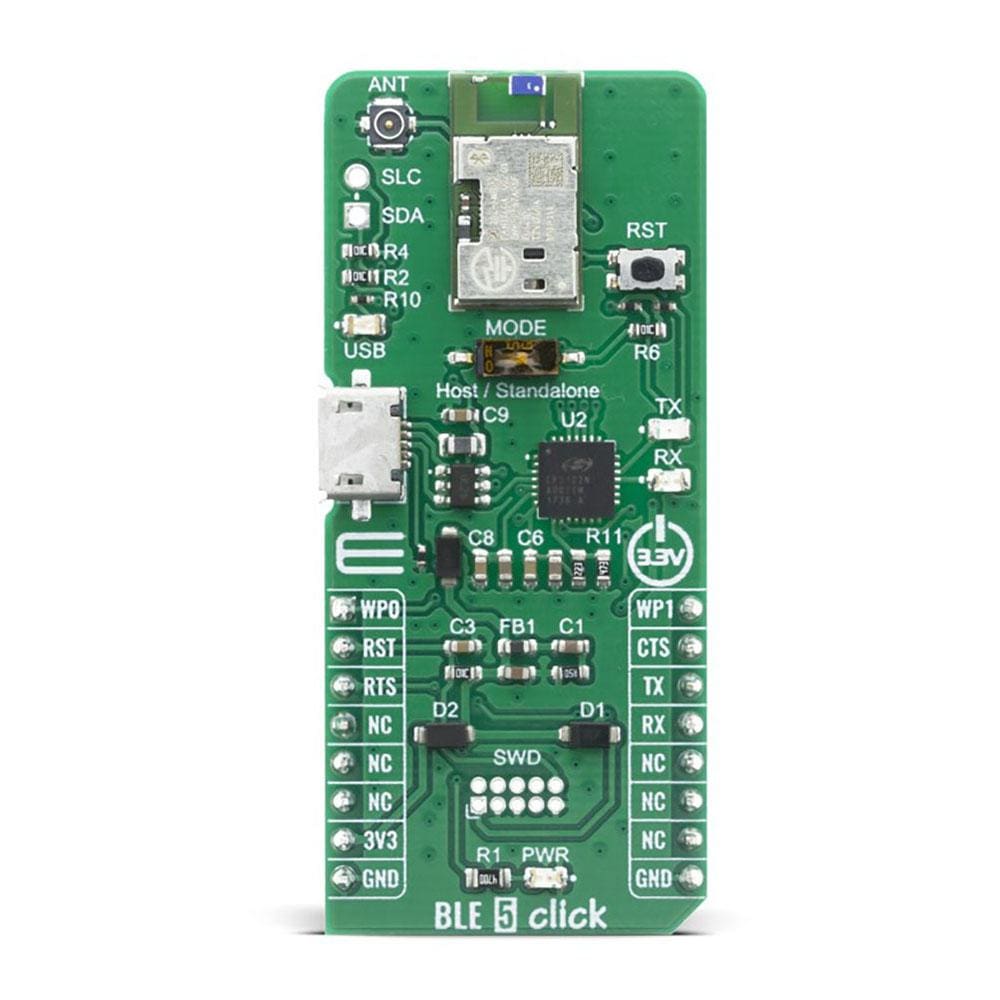
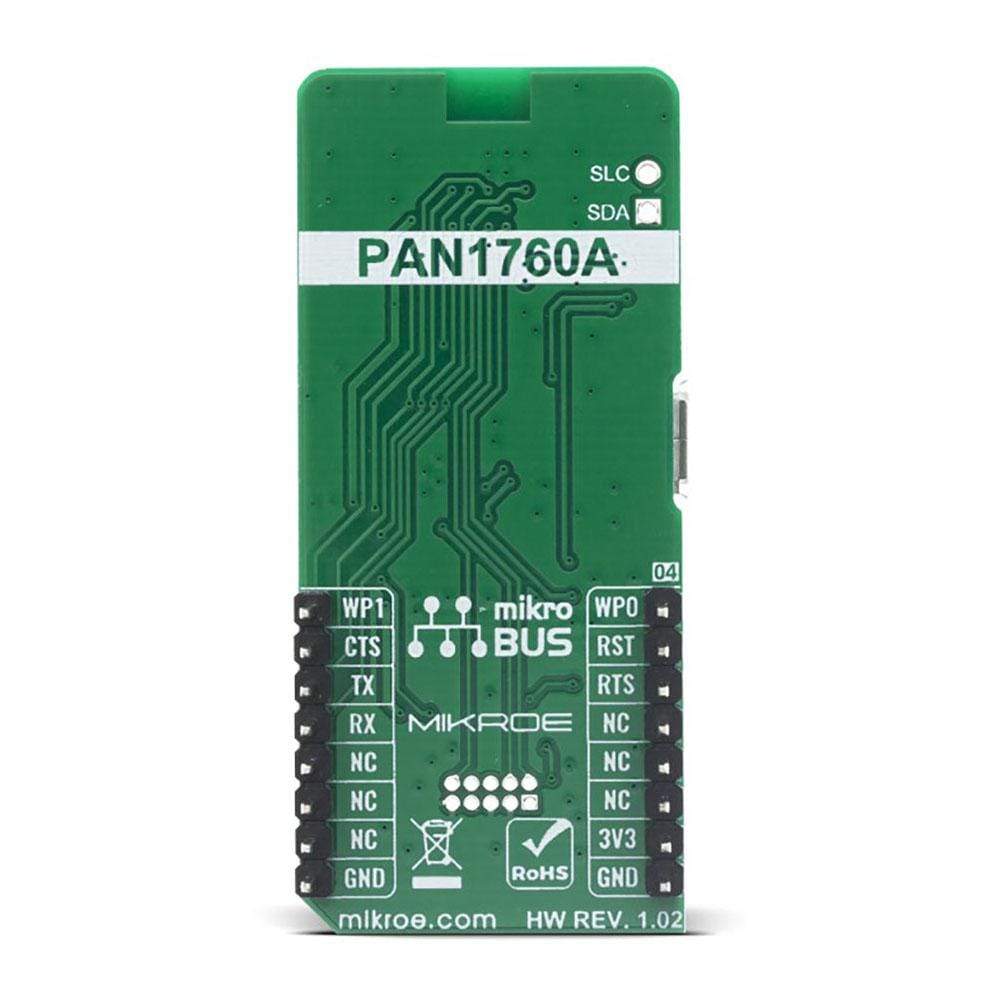
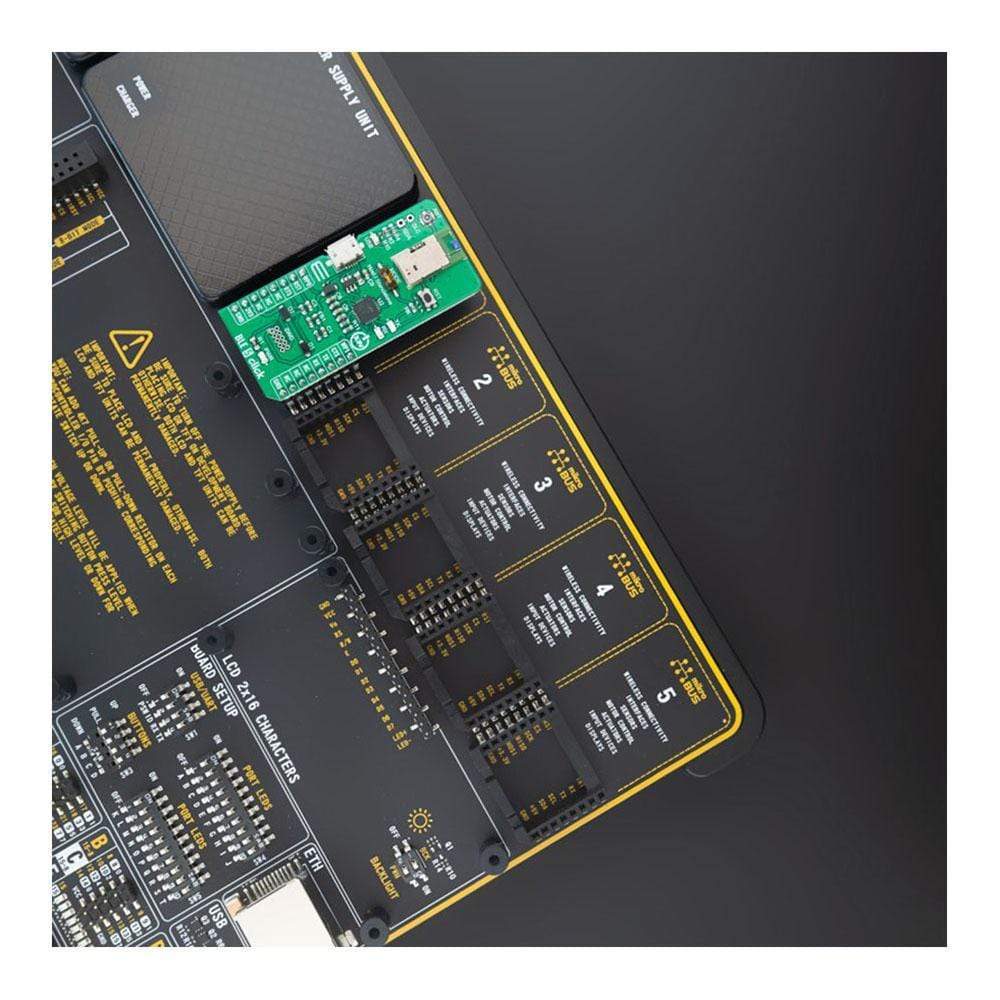
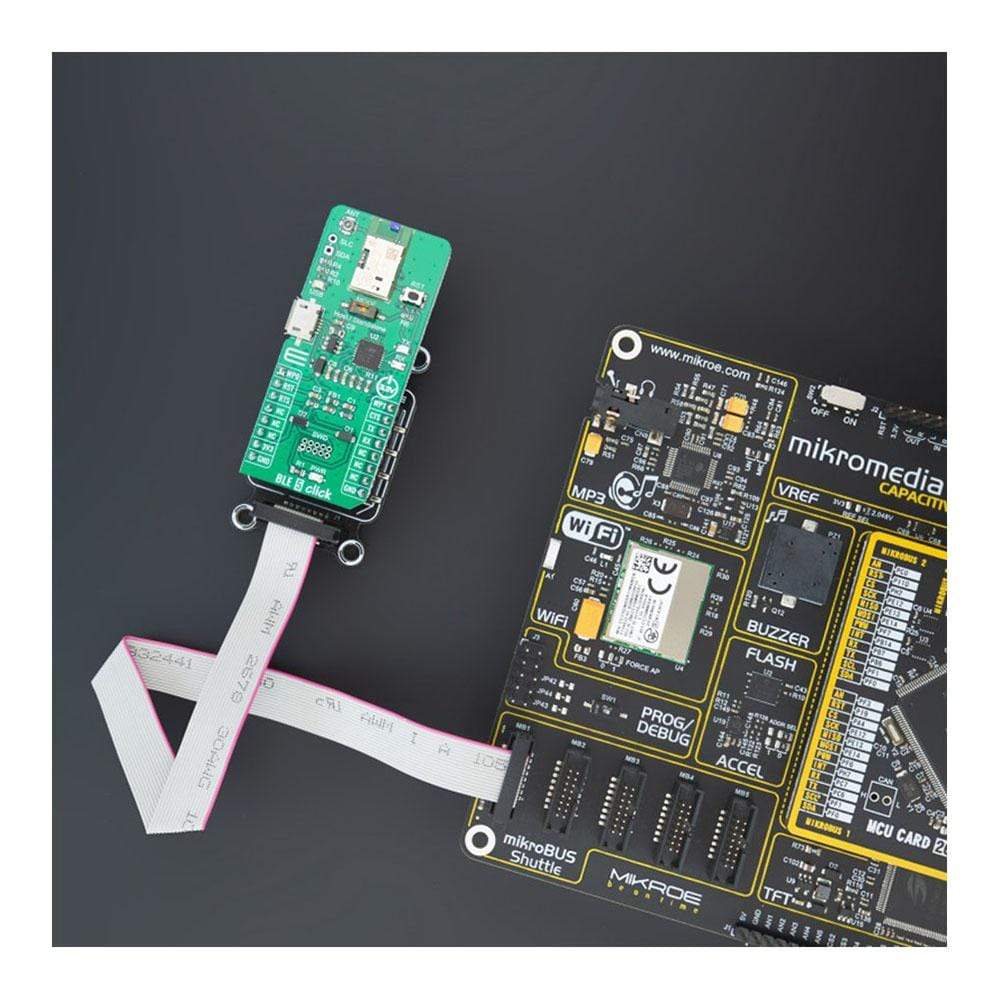
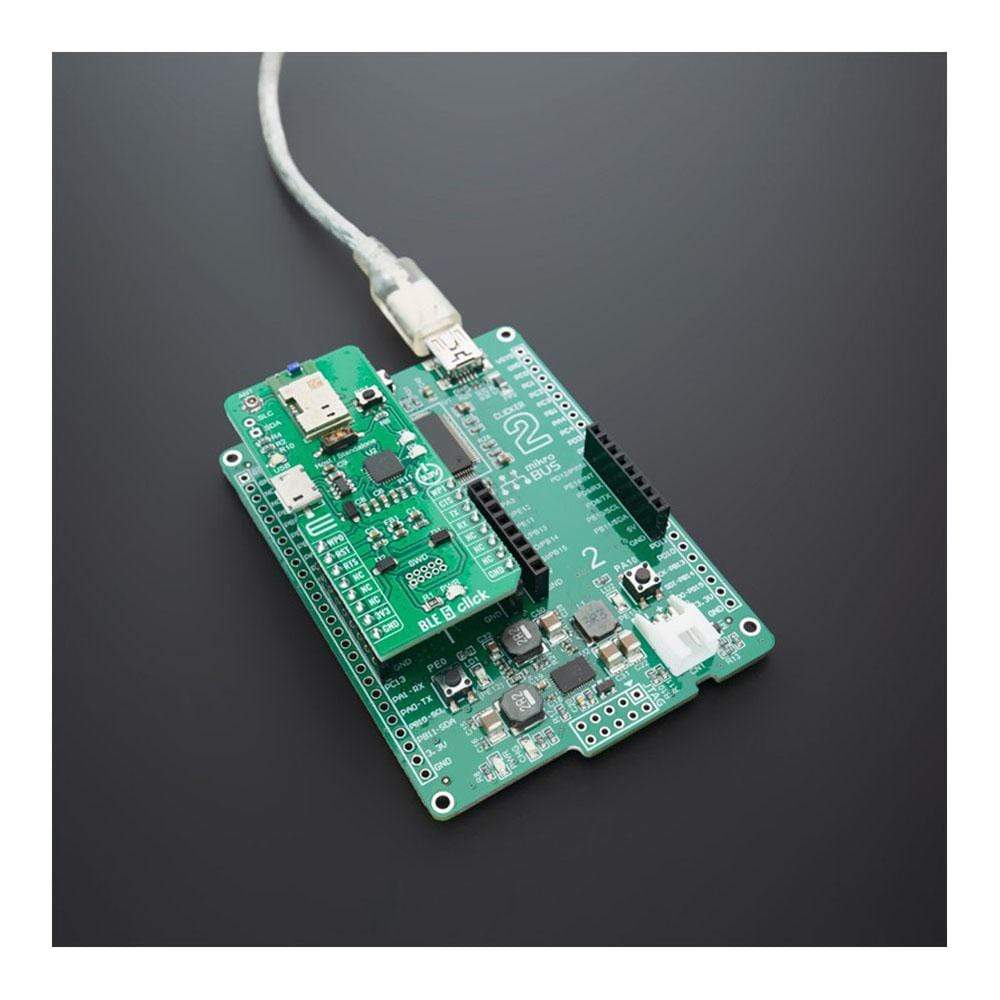
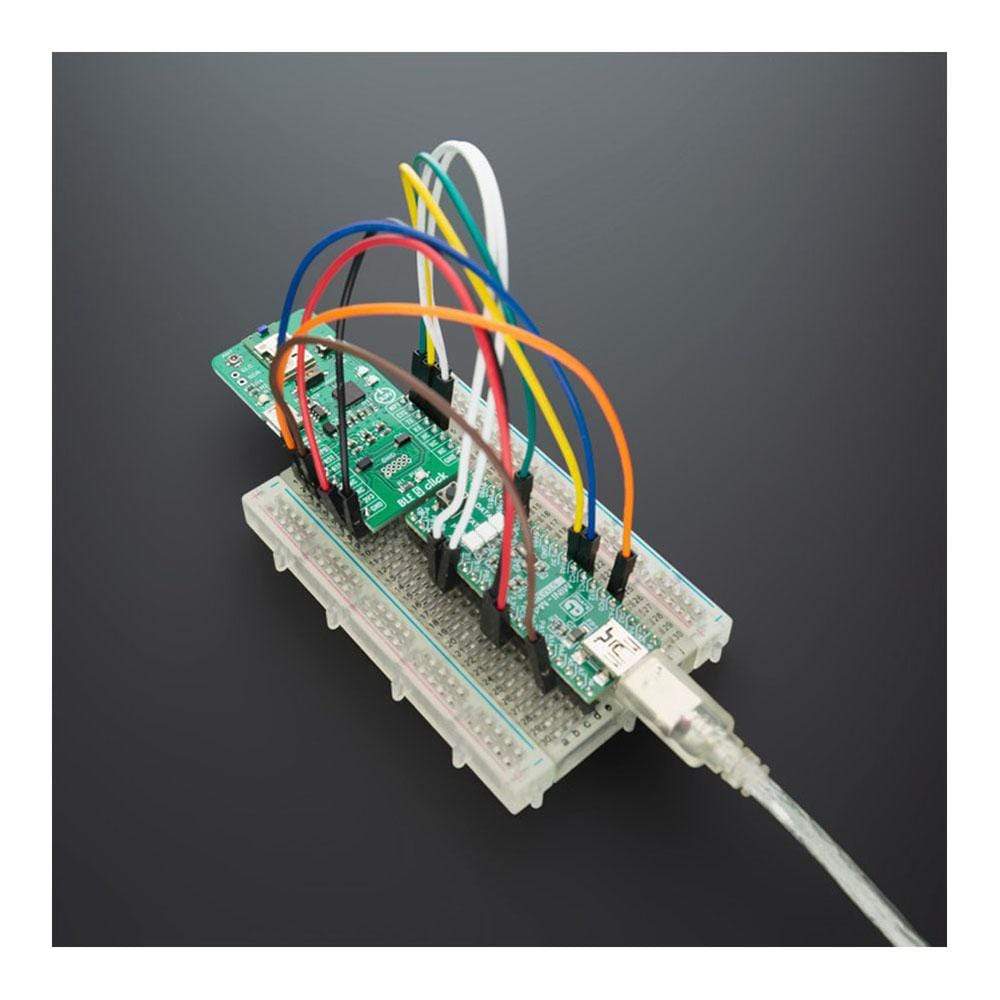
Overview
The BLE 5 Click Board™ provides BT/BLE connectivity for any embedded application. The BLE 5 Click Board™ is based on the PAN1760A, a module from Panasonic. The Click Board™ with small Bluetooth Low Energy module for easy integration of Bluetooth Low Energy connectivity (BLE) into various electronic devices. Our board is coming with a module already pre-programmed for AT command mode and can be controlled over the UART interface, in case you need this module to work in Host or Stand-Alone mode a new firmware needs to be applied.
Given its features, the BLE 5 Click Board™ can be used for health, sports, and wellness devices as well as Industrial, home, and building automation; and smartphone, tablet, and PC accessories.
Downloads
Das BLE 5 Click Board™ bietet BT/BLE-Konnektivität für jede eingebettete Anwendung. Das BLE 5 Click Board™ basiert auf dem PAN1760A, einem Modul von Panasonic. Das Click Board™ mit kleinem Bluetooth Low Energy-Modul für die einfache Integration von Bluetooth Low Energy-Konnektivität (BLE) in verschiedene elektronische Geräte. Unser Board wird mit einem Modul geliefert, das bereits für den AT-Befehlsmodus vorprogrammiert ist und über die UART-Schnittstelle gesteuert werden kann. Falls dieses Modul im Host- oder Standalone-Modus funktionieren soll, muss eine neue Firmware angewendet werden.
Aufgrund seiner Funktionen kann das BLE 5 Click Board™ für Gesundheits-, Sport- und Wellnessgeräte sowie für die Industrie-, Heim- und Gebäudeautomatisierung sowie für Smartphone-, Tablet- und PC-Zubehör verwendet werden.
| General Information | |
|---|---|
Part Number (SKU) |
MIKROE-4120
|
Manufacturer |
|
| Physical and Mechanical | |
Weight |
0.02 kg
|
| Other | |
Country of Origin |
|
HS Code Customs Tariff code
|
|
EAN |
8606018717507
|
Warranty |
|
Frequently Asked Questions
Have a Question?
Be the first to ask a question about this.







